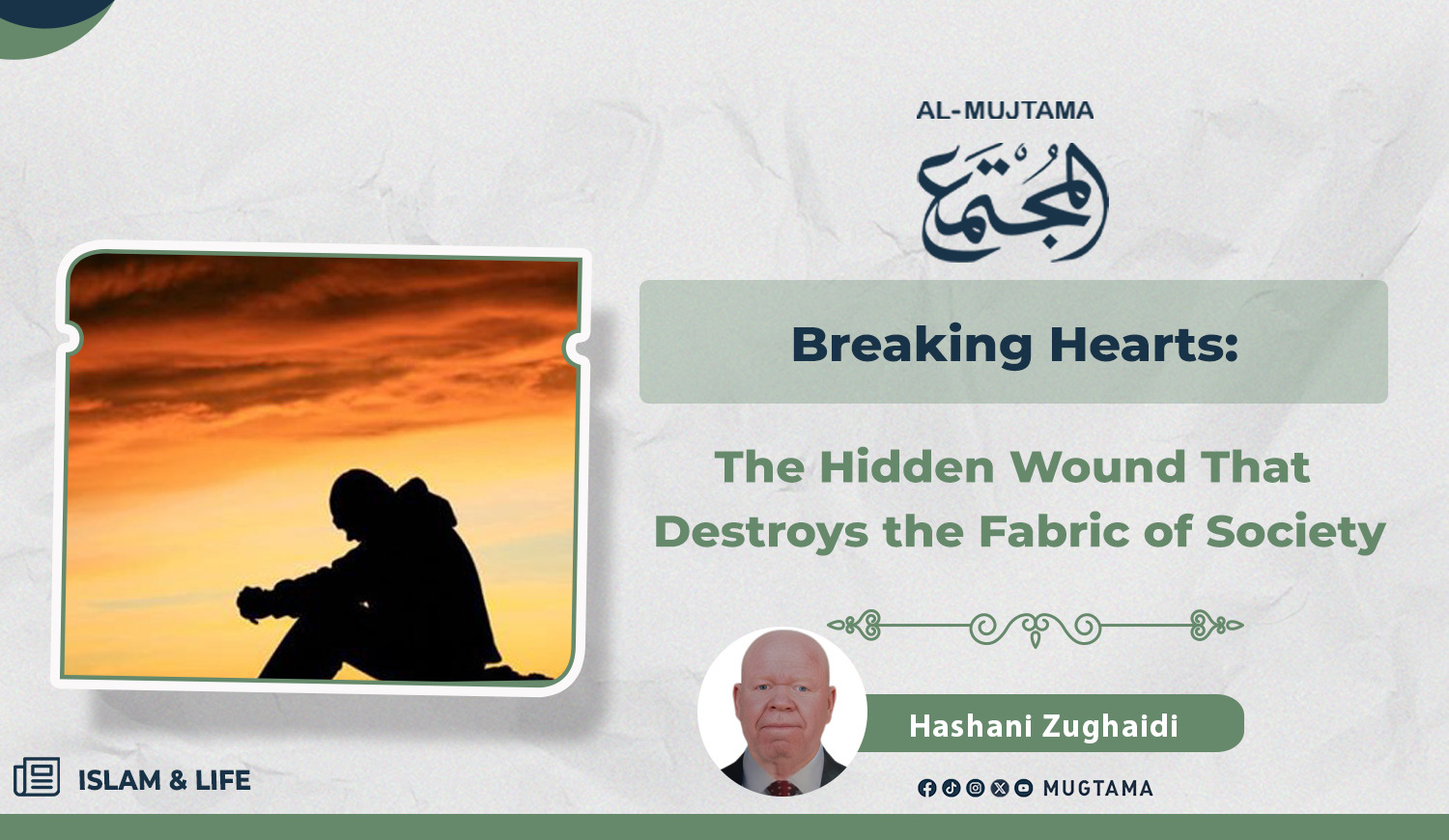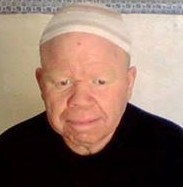A Harsh Word or a Condescending Look Can Kill
Breaking Hearts: The Hidden Wound That Destroys the Fabric of Society

Hashani Zughaidi
----------------
In the hustle and bustle of life and the intertwining of interests, many overlook that a harsh word or a condescending look can create a deep rift in the soul of a person who has nothing but silence, leaving an indelible scar that continues to ache with every memory.
These broken hearts are not fleeting individual pains; rather,
they are a wound in the body of the unified society from which cohesion and
values bleed away, causing the bonds of brotherhood to crack and compassion to
erode.
The Prophet Muhammad (peace be upon him) warned us against
this hidden ailment when he said: "A Muslim
is the brother of a Muslim; he neither wrongs him nor abandons him" (Bukhari,
2442). How can we be a cohesive nation if we allow ourselves to break each
other's hearts with a word, an action, or even a gesture?!
Manifestations of Broken Hearts
The forms of breaking hearts in our lives are numerous, and
perhaps the clearest among them is taunting others for their shortcomings.
This includes mocking skin color, ridiculing a physical disability, or
despising a noble profession. All of these are contemporary manifestations of
the pre-Islamic arrogance that Islam forbade.
The Prophet (peace be upon him) rebuked Abu Dharr when he
taunted a man about his non-Arab mother, saying: "Indeed,
you are a person who still has remnants of the Pre-Islamic Era (Jahiliyyah) in
you" (Narrated by Muslim). This shows us that bullying or
taunting is not merely a slip of the tongue, but an ethical crime that harms
human dignity.
Another form of breaking hearts is what we see in the ill-treatment
of the poor and the weak, as if their need is a mark of shame upon them. We
heap contempt on them or burden them with hurtful words that add to their
sorrow, even though the Quran clearly states: "Kind speech and forgiveness are
better than charity followed by injury" (Al-Baqarah:
263).
Even charity is not accepted if it is accompanied by humiliation and contempt
for the recipient.
The most profound way hearts are broken is when we discourage
those who repent and close the doors of return to Allah in their faces. We
mock their past and hinder their repentance, even though it is our duty to
conceal their faults and encourage their reform, in fulfillment of the
Prophet's (peace be upon him) saying: "Whoever
covers (the fault of) a Muslim, Allah will cover his fault on the Day of
Resurrection" (Narrated by
Bukhari). The culture of mocking the repentant disheartens resolve and
closes off avenues of hope for them.
Roots of This Affliction
The causes of broken hearts stem from dangerous psychological
and social motives, including arrogance due to wealth or lineage, which
generates a sense of classism. Another cause is hardness of heart and a
lack of awareness of the impact of words on souls. Yet another is ignorance
of Islamic laws and the rulings of brotherly faith, leading to hatred, societal
disintegration, and the loss of blessings and reward.
Islam came to uproot these pre-Islamic morals and
establish in their place a balance of justice and benevolence, solidifying the
values of compassion and fairness.
To remedy this dangerous affliction, bridges of mercy must
be built by reviving the culture of "being in the need of your
brother," which the Prophet (peace be upon him) linked to serving people
and gaining Allah's help. He said: "Whoever
is in the need of his brother, Allah will be in his need" (Narrated
by Bukhari).
We also learn from our religion the value of concealing
people's faults instead of exposing them, unless there is a public harm in
doing so, in fulfillment of the Prophet's (peace be upon him) saying: "Whoever relieves a Muslim of a worldly distress,
Allah will relieve him of a distress on the Day of Resurrection" (Narrated
by Bukhari).
Furthermore, we need to soften our tongues and gentle our
words. Harshness in speech is not courage but a weakness of the soul, and
the Quran clearly states: "And speak to
people good words" (Al-Baqarah: 83). Even advice can be given
with kindness that neither wounds nor destroys.
Let's Heal the Rift Before It Widens
A broken heart is like a fractured bone in the body of the Ummah
(Muslim nation); people may not see it, but it aches with every movement,
paralyzing society's strengths and depriving it of the ability to cooperate and
build.
We will not reform our nation while we carry the hammer of
breaking hearts in our hands. The beloved Prophet's (peace be upon him) advice
remains a beacon for us: "Kindness is not
found in anything but that it adorns it, and it is not removed from anything
but that it shames it" (Narrated by Muslim). This reminds us
that mending hearts is the adornment of our character and the essence of our
humanity.
So, let our motto always be the Prophet's (peace be upon him)
saying: "None of you truly believes until
he loves for his brother what he loves for himself" (Narrated by
Bukhari). Who would love their heart to be broken?!











